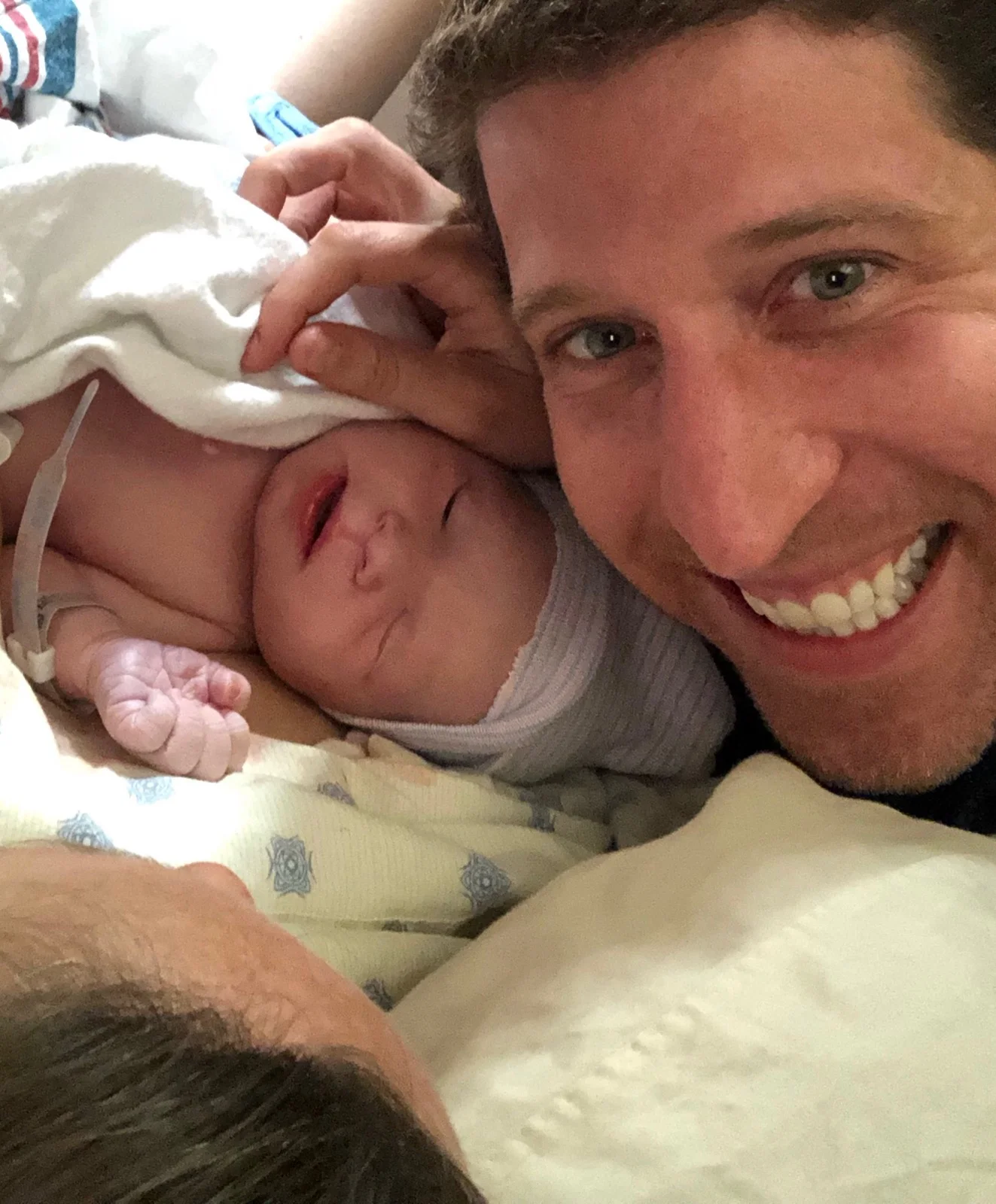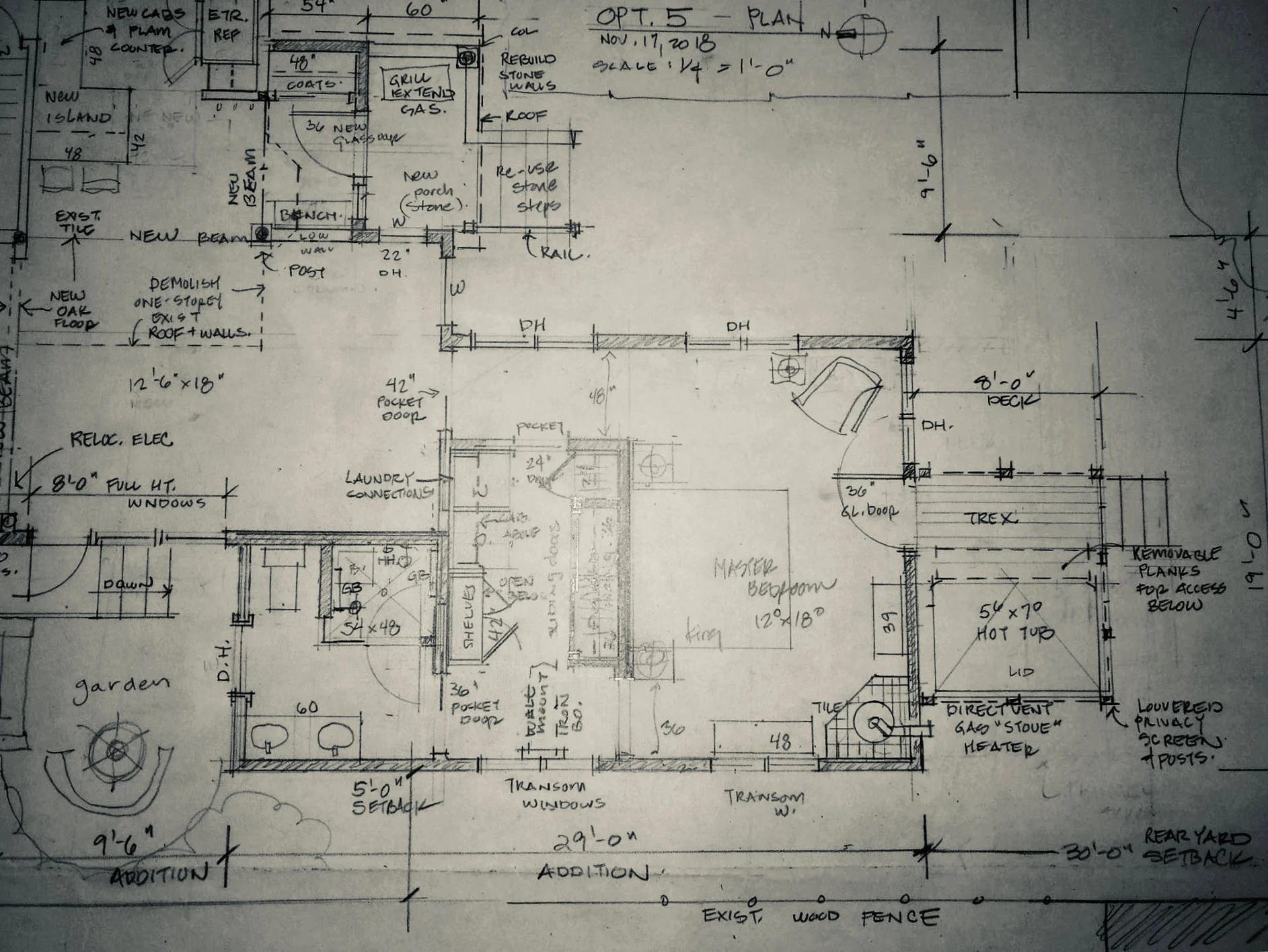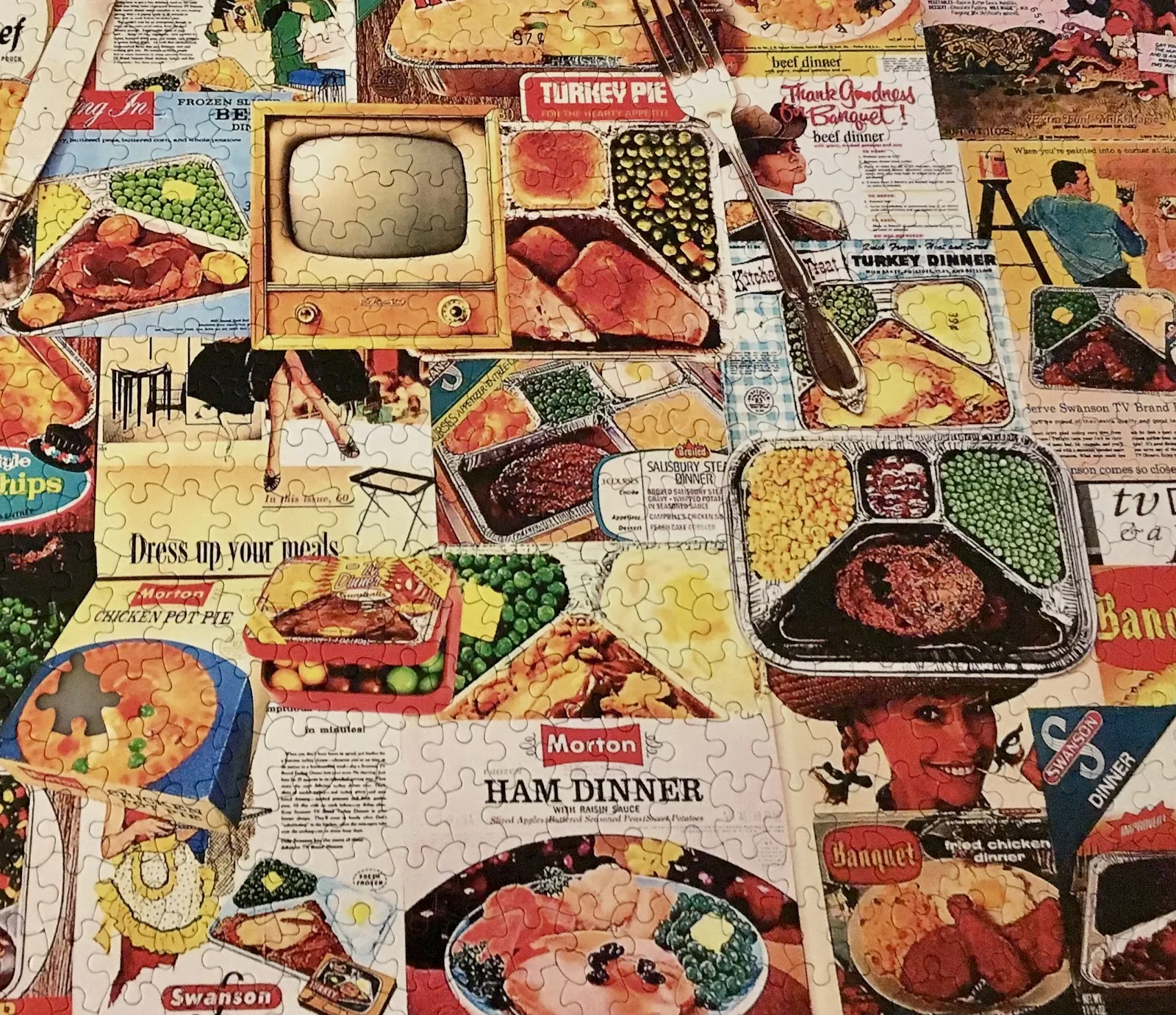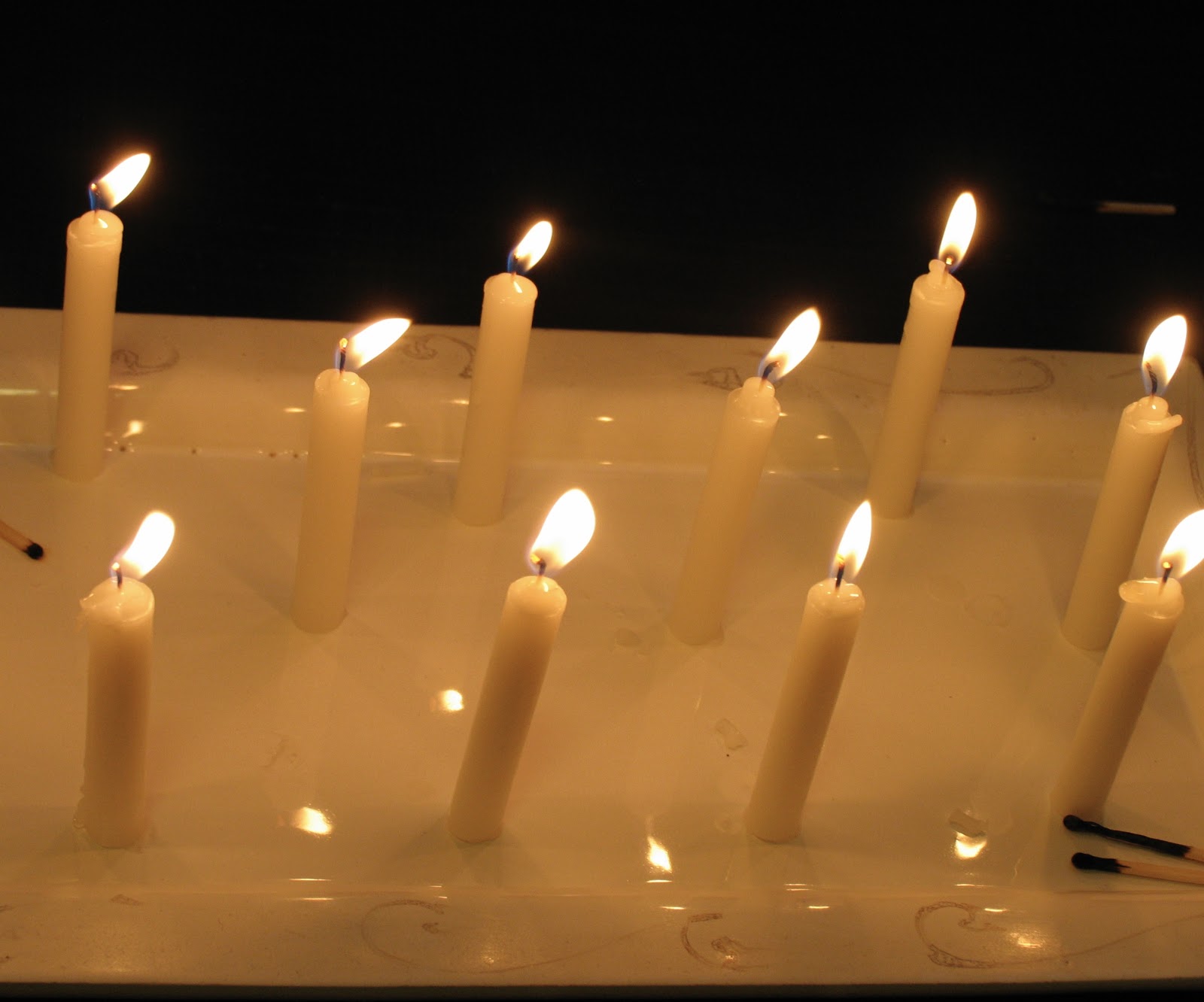Just Another Homeless Family
Every year I went looking for my Christmas sermon. For over thirty years, my sermon search was part of my holiday tradition. It’s not like it was lost; I hadn’t misplaced it; I just didn’t know where to find it. In fact, some years, I didn’t even know where to start looking. So, as I prepared for Christmas - making hospital visits, handing out gift baskets in the food pantry, singing carols with the choir, welcoming people to the Messiah Sing, and decorating the church and my own home, I’d be searching for my Christmas sermon. Once I found it, I was ready for Christmas.
This year, I have no pulpit from which to share a Christmas sermon. That’s the reality of being retired. I wonder how many retired clergy find themselves a little out of sorts - kind of homeless - at Christmas. So many rituals left behind. But old habits die hard. I still went looking.
My nephew, Jesse, and his wife Meghan, just had their first child, a healthy baby boy
Owen Wesley Lind - Born in Austin, TX on December 18 at 2:26 am
Owen’s birth reminded me of a Christmas sermon preached long ago. If you have time to read it, I hope you enjoy it, and I wish you a blessed Christmas.
It was early winter, not too cold but cold enough. They had just arrived into town. He was an unemployed autoworker. He had been laid off, looking for work for over two years. He’d had a few odd jobs: packing cartons in a warehouse, night clerking at a convenience store, dishwashing in a diner. His unemployment had long since run out. He was hoping for an extension, but now it looked hopeless.
She once had a steady job in an office, and then at a department store. However, with the local economy suffering from so many plant closures, she couldn’t even find a full time waitress job. Besides, she was now nine months pregnant. Recently, nobody had been willing to hire her.
Life had been hard for the past few years. First, the auto plant closed. Then the house was sold with just enough profit to replace the transmission on their late model used car, pay some overdue bills, and make a deposit on an apartment – the deposit that the landlord kept after they got evicted for back rent. To make matters worse, their health insurance expired months ago, and they didn’t know how they were going to pay for the baby about to be born. So they packed up the few belongings that hadn’t been sold or repossessed and headed for east.
They had been in town for a few days, staying in a rundown motel, the one with the broken coke machine and the sign advertising weekly, daily and hourly rates, the one across from the big church with the men’s shelter. They had received help from its food pantry, but without a kitchen, it had been hard to cook, and eating out had taken every last dime.
Now their money had run out, and they were running on empty. The hotel manager said that they had to go. “NO CREDIT – PAYMENT IN ADVANCE” read the sign behind the Plexiglas barrier at the registration desk. The manager’s wife whispered something to her husband about the woman’s state of pregnancy, but all she got was a scowl and a muttered, “I told you that we can’t keep doing this.”
The couple went down to the local welfare office. Having patiently waited in line for over two hours, they were met by a haggard and hurried social worker trying to get away for the holiday weekend. Politely but curtly, as if to avoid eye contact, she said without even looking up from her desk, “It’s going to take a few days for your paperwork to be processed. Come back early next week.”
“Where do we stay for now?” they asked. The caseworker opened her jam-packed file cabinet and pulled out a list of family shelters as well as the men’s shelter at the big church downtown. “What about a place for my wife to stay if we have to be separated?” asked the man with a worried wrinkle on his brow. Still avoiding eye contact, the social worker shrugged her weary shoulders and replied, “Unfortunately, there are no shelters for women in this county. Our only one was closed a few months ago. Perhaps you can find something in the next county over.”
The young couple looked at each other in the determined way couples do, knowing the unspoken thoughts of the other. No, they wouldn’t be separated – no matter what. Resolved that somehow things would work out, they left the welfare office and spent all day looking for a shelter that would take them both. They had no luck; the shelters were full.
They were sitting in a restaurant, drinking cups of coffee, staying warm, and wondering what to do next. They needed to find a place to go before dark. They walked out into the parking lot and saw a woman in her mid-twenties standing alone, leaning on a building across the street and staring at the passing traffic. Every now and then, she would run up to an approaching car, yell “Hi there,” and lean into the window to talk with the driver. She seemed like she knew her way around, and she had a friendly smile.
They looked at each other and thought, “What do we have to lose?” They walked up to her and asked: “Do you know where we might stay for the night? We’re not from around here; we’ve run out of money; we’re waiting for welfare; the shelters are full; we’re expecting a baby; and we’ve got to find a place – just for tonight.” With expectant eyes, they pleaded, “Can you please help us?”
The woman looked at them for a few seconds, and then with a grin she said, “Sure, follow me.” Off they went, following this stranger, not knowing exactly where they were going, but knowing that they really had no options left. As they walked, the woman introduced herself, saying her name was Lisa. She barraged her new acquaintances with a constant stream of friendly questions, but interrupted their answers with a running commentary on the neighborhood.
Eventually, this angel of the night led them to a big, dilapidated house. Paint peeled from the broken shingles, garbage filled the overgrown yard, and several abandoned mailboxes hung on the front porch. The house was boarded up, but a piece of plywood had been preyed loose from one of the windows. Lisa and the man helped the pregnant woman through the window and then climbed in behind her.
Once inside, as their eyes adjusted to the darkness of a building without windows, they could see many rooms and lots of stuff in various states of age, dirt and decay: clothing, newspapers, mattresses, blankets, dishes, pots and pans, beer and wine bottles, along with some discarded syringes and empty crack vials. There was a hose running through the wall from a spigot outside the house next door. Somebody had even hot-wired electricity, thus allowing a few single light bulbs hanging from old ceiling fixtures and wall sconces to light up the interior maze of rooms.
As they looked around, the soon-to-be parents realized that other people were living in this supposedly abandoned house. Lisa introduced her new friends to the others and explained their situation. She showed them to a soiled mattress surrounded by clothes, pillows, blankets and bags. “This is my space. You can stay here. Nobody will bother you. I’ll be back in a while.” And then she crawled out the window they had just crawled in.
The couple cautiously sat down on the mattress. They were exhausted, too tired to speak and lost in their own thoughts. He was reminiscing about days past, better days, and wondering if he would ever see them again. Why did the plant have to close? Why did they travel to this God-forsaken town? Where was their family when they were most needed? And, why, Lord, did she have to get pregnant? Leaning his sore back against the dirty wall, Bill recalled the discussion, actually the argument they had about abortion so many months ago. Without the utterance of words, he wondered: “Did we make the right choice?” “Too late now,” he concluded.
Angry, frustrated and scared, his thoughts turned to money. They didn’t have enough money for a hotel room, much less a hospital bed. “How will we handle this one?” he asked himself. Evading his own question, he thought, “At least we have a few more days before the baby is due.” He felt more alone than he had ever felt in his whole life. He just looked at his wife asleep on the mattress and sighed.
Meanwhile, the pregnant woman lay quietly on the stained mattress. She couldn’t sleep; she was too tired and too scared. Thinking to herself, lots of questions raced through her mind. Where were they? Who were all these people in this house? Were they safe? Were they foolish to follow Lisa here? She too remembered the argument in the early days of her pregnancy. “Were we stupid to have this baby?” Glancing over at her husband, she was thankful they were off the streets and relatively warm. “Fortunately, the baby isn’t due for a few days. We’ll figure things out.” She fell asleep.
Suddenly, in the middle of the night, the woman awoke to the breaking of her water – all over Lisa’s mattress. The contractions began coming fast and furious. She was frightened, and he didn’t know what to do. People in the house began to stir. Someone turned on a broken lamp and brought it over to their corner.
Shouldn’t they go to the hospital was the question on everybody’s mind. But nobody had enough money for a cab, and it was too late to walk. And if they called for an ambulance, they would risk losing their safe haven. “Could she have the baby here?” somebody asked.
Lisa had returned and was frantically running around trying to decide what to do. After all, they were her responsibility now. A middle-aged woman staying in the room upstairs came down. Her name was Pearl. Standing next to her was a sleepy young child, about the age of five. Pearl looked at the young couple and then at Lisa and declared with the wisdom and authority of age, “When I was growing up, babies were born at home. I guess she’ll have to do it here.” Taking charge, Pearl instructed Lisa to get some hot water and some towels. She told the expectant father to calm down and hold his wife’s hand.
The contractions started coming harder and faster. The pregnant woman was screaming and crying. Her anxious husband was shaking. A small group of people staying in the house began to form a circle around them. Lisa shooed them away, back into the shadows.
After an hour and a half, she pushed hard, and a baby was born. Pearl took the baby and slapped it on his behind exclaiming: “You know, they say that when a newborn is spanked on its bottom, he forgets everything he learned in his mother’s womb.” Cutting the umbilical cord with a kitchen knife, she placed the baby on his mother’s breast whispering, “Here’s your angel child. He’s a boy.”
As the group stood quietly around the mattress, each with his or her own thoughts, Pearl’s child crept up to the young mother and her newborn infant. He leaned over them, kissed the baby on the cheek, and whispered in his ear, “I hope you find a place to live.”
The new mother gazed at her husband smiling with tears in his eyes. She then looked up at Pearl and her child, Lisa, and all the people standing in the sacred circle. Quietly she asked, “What shall we name this baby?” Lisa smiled and said, “How about Jesu? And on that cold, winter night, in an abandoned house, in a poor city neighborhood, a child was born, a son was given, and his name was Jesu.
The homeless couple are fictional characters. Lisa, on the other hand, was a real person. In December 1991, Lisa and her companion Ivan were homeless. Actually, they were living in an abandoned storage trailer in the parking lot of a factory across the street from my church. They both had been on the streets for some time, in and out of the shelter and jail systems, and they had become my friends. I had been trying to convince them to get off the streets and into permanent housing. I feared they wouldn’t survive the winter months. Each time we talked about it, they laughed and told me not to worry.
On Christmas Eve, I asked Lisa if she would like to be the angel in my Christmas message. In her excited manner, she was delighted. In appreciation, I gave Lisa and Ivan money to have a shower, a meal, a new set of clothes, and a bed for the night in the hotel across the street form the church. I then invited them to attend Christmas Eve services and hear the story.
As I rose to the pulpit that night, I saw Lisa and Ivan sitting in a pew in the middle of the nave. Both of them were freshly showered and wearing relatively clean clothes. When I first mentioned Lisa’s name in the sermon, her eyes lit up, and by the end of the story, she was grinning from ear to ear.
The next day, Lisa and Ivan were arrested for trespassing. Because of bench warrants, they were locked up in the county jail and had a warm place to sleep for the next several months. Maybe God was watching out for them. Both Lisa and Ivan have since died and are now real angels in heaven. I know they still love each other.
This is Lisa and Ivan. I made their portrait downtown one day when we were all watching the filming of The Preacher’s Wife. I still miss their smiles.












